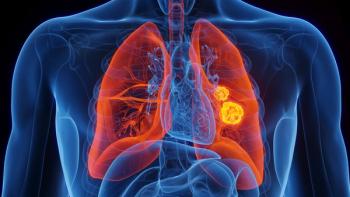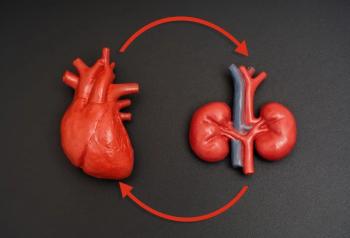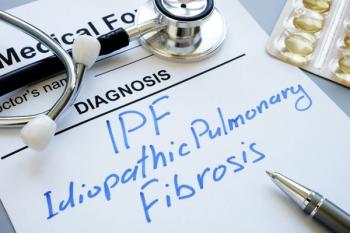
Academia
Latest News
Latest Videos
Podcasts
CME Content
More News

A new analysis suggests links between ZRSR2 loss and JAK2 V617R disease progression are indirect and complex.

Dana-Farber researchers have uncovered mutation pathways driving aggressive disease transformation.

LAG-3 expression appears to be significantly elevated in patients with small cell lung cancer (SCLC).

Atomic force microscopy successfully identified nanomechanical changes in fibrotic lung tissue.

Metallomic correlations suggest environmental and metabolic metals act together to accelerate renal damage.

Integrated data suggest higher tryptophan activity is associated with reduced inflammation and improved outcomes in RA.

A Mendelian randomization study suggests Actinomyces plays a role in idiopathic pulmonary fibrosis, mediated by circulating inflammatory proteins.

Researchers developed a first-of-its-kind panel to track receptor expression and predict therapy response.

Early research has identified several antigens that could help facilitate the use of chimeric antigen receptor T cells in small cell lung cancer.

As the hospital-at-home model grows, a consortium is needed to advance scalability, equity, caregiver well-being, and cost efficiency through research and collaboration.

A recent study outlines how artificial intelligence advancements are transforming research and therapeutic strategies for idiopathic pulmonary fibrosis.

As the prevalence of both chronic kidney disease (CKD) and heart failure (HF) increases, therapies targeting shared pathways are one of the most promising strategies to alter the trajectory of these diseases.

The authors discuss the need to repair a house divided among research, health care, and the multisector health community.

This article presents a case study of how stakeholders in one state came together to integrate practice and research that is a step beyond a learning health care system.

Patients with small cell lung cancer (SCLC) experienced better responses to immune checkpoint inhibitors if they had higher levels of NOTCH1 expression in a recent study.

Strategies that combine ferroptosis inhibition with established antifibrotics could ultimately move treatment from slowing progression to truly reversing fibrosis, new research suggests.

As many as one quarter of people with chronic urticaria also have metabolic syndrome, data suggest.

The findings are part of a new wave of research that uses artificial intelligence (AI) to hasten scientific discovery.

New findings demonstrate an association between increased cumulative depression genetic burden and multiple sclerosis (MS) disease activity.

Investigators believe the SWIFT-seq system holds potential to replace more invasive bone marrow biopsies.

Synthetic generation replicates key clinical patterns from real-world data, enabling valid analyses with fewer patients.

Cutting-edge cancer therapies and innovative care models that advance patient access and significantly reduce health care costs took center stage at the Institute of Value-Based Medicine (IVBM) event in Minneapolis, Minnesota.

The newly developed model has an area under the curve of 0.807 for predicting progression-free survival.

The use of retinal images can help investigators noninvasively identify chronic kidney disease and assess patient prognosis.

Patients with idiopathic pulmonary fibrosis are at a higher risk of certain cardiovascular diseases.
























